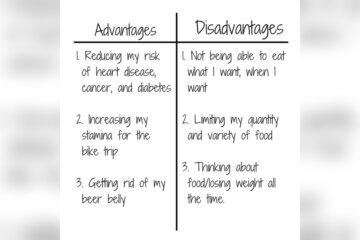What is the difference between supplements and vitamins? Supplements are products taken to enhance the diet, while vitamins are organic compounds essential for normal body function. Supplements can include vitamins, minerals, herbs, amino acids, and enzymes.
Understanding the difference between supplements and vitamins is crucial for maintaining optimal health. Supplements are broader and encompass a wide range of products designed to improve overall well-being. Vitamins, on the other hand, are specific organic compounds that the body needs in small amounts for various physiological functions.
People often use supplements to fill nutritional gaps, boost immunity, or support specific health goals. Knowing what your body needs can help you choose the right products. Both supplements and vitamins play vital roles, but it’s essential to know their distinctions to make informed health decisions.
Introduction To Supplements And Vitamins
Supplements and vitamins are common terms in health and wellness. People often use them to enhance their diet and health. But what exactly do they mean? And how do they differ?
This blog post will explain the basics and benefits of each and clarify how they can support overall health.
The Basics Of Supplements
Dietary supplements, which are available in a variety of formats, such as liquids, powders, and pills, are one way to supplement your diet.
- They can provide minerals, amino acids, and herbs.
- They are often used to improve health or physical performance.
- Common supplements include protein powders, creatine, and fish oil.
Supplements can be a lifesaver for compensating for dietary deficiencies, but they are not a substitute for a balanced diet.
Essential Vitamins For Health
You can’t have healthy bodily functions without vitamins, which are organic substances. They are crucial for growth, immune function, and energy production.
There are 13 essential vitamins:
| Vitamin | Function | Food Sources |
| Vitamin A | Vision, Immune Function | Carrots, Sweet Potatoes |
| Vitamin C | Antioxidant, Skin Health | Oranges, Strawberries |
| Vitamin D | Bone Health, Immune Function | Sunlight, Fish |
These vitamins are typically obtained through food. Some people may need supplements to meet their needs.

Categories Of Dietary Supplements
Dietary supplements come in various forms. They include vitamins, minerals, herbs, and amino acids. Each category serves a unique purpose. Knowing the differences can help you make better health choices.
Vitamins As Supplements
Vitamins are essential nutrients that support various body functions. Examples include Vitamin C, Vitamin D, and B vitamins. Vitamin C boosts the immune system; Vitamin D helps with bone health, and B vitamins aid in energy production.
| Vitamin | Function | Food Sources |
| Vitamin C | Boosts immune system | Oranges, strawberries, bell peppers |
| Vitamin D | Supports bone health | Sunlight, fatty fish, fortified milk |
| B Vitamins | Aids energy production | Whole grains, meat, eggs |
Minerals, Herbs, And Amino Acids
Minerals are crucial for various functions. Calcium strengthens bones and teeth. Iron helps carry oxygen in the blood. Magnesium supports muscle and nerve function.
Herbs are plant-based supplements that offer various health benefits. Turmeric decreases inflammation, ginger aids digestion, and
echinacea strengthens the immune system.
The fundamental units of protein synthesis are amino acids. Food is the only source of essential amino acids. The body produces non-essential amino acids. Branched-chain amino acids (BCAAs) help with muscle recovery.
| Type | Function | Examples |
| Minerals | Support various body functions | Calcium, Iron, Magnesium |
| Herbs | Offer plant-based benefits | Echinacea, Ginger, Turmeric |
| Amino Acids | Build proteins | Essential amino acids, Non-essential amino acids, BCAAs |
Understanding these categories helps you choose the right supplements. Each category offers unique benefits. Before beginning a supplement program, you must consult a healthcare professional.
Vitamins: Building Blocks Of The Body
Vitamins are essential nutrients that our bodies need to function properly. They play a vital role in growth, development, and overall well-being. Each vitamin has a unique function and is crucial for maintaining good health. Understanding the differences between supplements and vitamins can help make better health choices.
Fat-soluble Vs. Water-soluble Vitamins
There are two basic categories of vitamins: those that dissolve in fat and those that dissolve in water
| . Fat-Soluble Vitamins | Water-Soluble Vitamins |
| Vitamins A, D, E, K | Vitamins C, B-complex |
| Stored in the body’s fat tissues | It is not stored in the body and needs daily intake. |
| It can be toxic in large amounts | Excess is excreted in urine. |
The body stores vitamins that are soluble in fat in adipose tissue and the liver. They can be toxic if taken in large amounts. Water-soluble vitamins are not stored in the body and need to be consumed regularly. The body excretes any excess water-soluble vitamins through urine.
Natural Sources Of Essential Vitamins
The best way to meet your nutritional needs is to consume a balanced diet rich in natural sources of essential vitamins.
- Vitamin A: Found in carrots, sweet potatoes, and spinach.
- Vitamin C: Abundant in citrus fruits, strawberries, and bell peppers.
- Vitamin D: Obtained from sunlight, fish, and fortified dairy products.
- Vitamin E: Present in nuts, seeds, and green leafy vegetables.
- Vitamin K: Found in broccoli, kale, and Brussels sprouts.
- B-complex Vitamins: Available in whole grains, meat, and legumes.
Including a variety of these foods in your diet ensures you get all the essential vitamins your body needs. Supplements can help fill gaps, but natural food sources are always preferable.

Supplements: Beyond Basic Nutrition
Supplements offer more than basic nutrition. They can boost performance and replace meals. They play a key role in modern diets. Let’s explore how supplements help us.
Performance Enhancers And Meal Replacements
Performance enhancers help athletes and active people. These supplements improve strength, speed, and endurance. Common performance enhancers include:
- Protein powders
- Creatine
- BCAAs (Branched-Chain Amino Acids)
Meal replacements are for those with busy lives. They provide a quick and easy way to get nutrients. These come in the form of shakes, bars, or powders. Popular meal replacements include:
- Protein shakes
- Nutritional bars
- Ready-to-drink meal shakes
The Role Of Supplements In Modern Diets
Supplements fill nutritional gaps in our diets. Many people do not get enough vitamins and minerals from food alone, and supplements help maintain a balanced diet.
Here are some common supplements and their benefits:
| Supplement | Benefit |
| Multivitamins | Provide essential vitamins and minerals. |
| Omega-3 | Support heart health |
| Vitamin D | Strengthen bones and immune system. |
No amount of supplementation can take the place of a balanced diet. They should complement a balanced diet. Before beginning a supplement program, you must consult a healthcare professional.
Regulatory Landscape
The regulatory landscape for supplements and vitamins is complex, involving various rules and guidelines. Understanding these regulations helps ensure the safety and quality of these products.
FDA Regulations On Supplements
The FDA oversees the regulation of dietary supplements, including ensuring that they are safe and properly labeled. Unlike drugs, supplements do not need pre-market approval. Manufacturers are responsible for ensuring their products are safe, and the FDA can take action if a supplement is unsafe or misleading.
- Supplements must have clear labels.
- Ingredients must be listed accurately.
- All health claims must be accurate and not deceive the public.
Quality Control And Standards For Vitamins
Vitamins have stricter quality control standards than supplements. They are often subject to more rigorous testing. This ensures that they contain the correct amounts of nutrients. Here are some key points on quality control for vitamins:
| Quality Control Measure | Details |
| Testing for Purity | Ensures vitamins do not contain harmful contaminants. |
| Consistency Checks | Ensures each vitamin batch is the same. |
| Label Accuracy | Ensures nutrient amounts match the label. |
Both supplements and vitamins must adhere to specific regulations. This ensures consumers receive safe and effective products. Customers who are aware of these distinctions can make better decisions.
Pros And Cons Of Supplementation
Supplements and vitamins are often part of our daily routines. They promise a range of health benefits. But it’s important to weigh the pros and cons before adding them to your regimen. This section will help you understand the benefits and risks of supplementation.
Benefits Of Taking Supplements
Supplements can fill nutritional gaps in your diet. Many people don’t get all the nutrients they need from food alone, and supplements provide an easy way to meet these needs. For example, Vitamin D supplements can help those who don’t get enough sunlight.
They can also boost your immune system. Some minerals and vitamins, such as zinc and vitamin C, help the immune system. This can help you stay healthy, especially during cold seasons.
Another benefit is that supplements can improve overall well-being. For instance, omega-3 fatty acids can enhance brain function. Calcium supplements can strengthen bones. These are just a few examples of how supplements can be beneficial.
Potential Risks And Side Effects
While supplements have benefits, there are also risks involved. One major risk is the possibility of overdosing. Taking too much of a supplement can be harmful. For example, too much Vitamin A can lead to liver damage.
There is also the risk of interactions with medications. Supplements can interfere with prescription drugs. This can make the medication less effective or cause side effects. Always consult your doctor before starting any new supplement.
Another downside is the lack of regulation. Not all supplements are tested for safety and efficacy. This means you might only sometimes know what you’re getting. Choosing reputable brands is crucial to avoid harmful ingredients.
| Pros | Cons |
| Fills nutritional gaps | Risk of overdosing |
| Boosts immune system | Interactions with medications |
| Improves overall well-being | Lack of regulation |
Understanding Dosages And Interactions
Understanding dosages and interactions is critical when taking supplements and vitamins. This knowledge helps you avoid harmful side effects and maximize benefits. Let’s explore the recommended daily allowances and interactions with medications and nutrients.
Recommended Daily Allowances
The Recommended Daily Allowance (RDA) is the daily intake level of a nutrient considered sufficient to meet the requirements of most healthy individuals.
- RDAs vary by age, gender, and life stage.
- Always check the label for the RDA percentage.
- Supplements and vitamins, in excess, might have negative health effects.
For example, the RDA for Vitamin C is 90mg for adult men and 75mg for adult women. Exceeding these amounts can lead to side effects like stomach upset.
Interactions With Medications And Nutrients
Supplements and vitamins can interact with medications and other nutrients. Certain interactions may cause medications to have less of an impact or perhaps induce unwanted side effects.
| Supplement | Potential Interaction | Effect |
| Vitamin K | Blood thinners | Reduces effectiveness |
| Calcium | Antibiotics | Reduces absorption |
| Iron | Levothyroxine | Reduces absorption |
Before beginning a new supplement regimen, it is important to talk to your doctor. They can help you determine safe dosages and potential interactions.
Making Informed Choices
Understanding the difference between supplements and vitamins is essential when it comes to your health. Both can play a significant role in your diet, but knowing what each offers and how to choose wisely can maximize benefits.
Consulting Healthcare Professionals
Before taking any vitamin or supplement, it is important to talk to your doctor. They can assess your specific needs and help identify any potential interactions with medications.
Doctors can recommend the right dosage. They can also guide you on the best time to take them. This ensures that you get the most out of your supplements and vitamins.
Research And Quality Brands
Conduct thorough research on brands before purchasing supplements or vitamins. Look for quality and reputable brands. This ensures that you get the best product available.
Check for third-party testing and certifications. This guarantees that the product meets quality standards. You can find this information on the brand’s website or product label.
Read customer reviews and testimonials. This tells you how well and how dependable the product is.
| Quality Indicators | Importance |
| Third-party Testing | Ensures product safety and quality |
| Certifications | Verifies standards and regulations |
| Customer Reviews | Gives real-world feedback on effectiveness |
Making informed choices involves consulting healthcare professionals and doing research. This will help you select the best supplements and vitamins for your needs.
Future Of Supplementation And Vitamin Intake
The world of supplements and vitamins is evolving rapidly. New technologies and trends are changing how we consume these essential nutrients. This section explores the exciting future of supplementation and vitamin intake.
Innovations In Supplement Delivery
Innovations in supplement delivery are making it easier and more efficient to get nutrients. New methods are replacing traditional pills and capsules.
- Transdermal Patches: These patches deliver vitamins through the skin. No need to swallow pills.
- Chewable Gummies: These are popular among kids and adults. They taste great and are easy to consume.
- Liquid Supplements are absorbed faster by the body, making them perfect for people who have trouble swallowing pills.
These innovations are making supplementation more convenient and enjoyable.
Trends In Vitamin And Supplement Usage
There are several emerging trends in vitamin and supplement usage. People are becoming more aware of their health needs.
- Personalized Supplements: Companies are offering customized vitamins based on individual health data.
- Plant-Based Supplements: Many are opting for supplements derived from plants. These are seen as more natural and sustainable.
- Focus on Gut Health: Probiotics and prebiotics are gaining popularity. They support digestive health and overall well-being.
These trends show a shift towards personalized and natural supplementation. People want to take control of their health in a more informed way.
| Delivery Method | Benefits |
| Transdermal Patches | Easy to use, no need to swallow |
| Chewable Gummies | Tasty, easy for kids and adults |
| Liquid Supplements | Fast absorption, easy to consume |
The future of supplementation and vitamin intake looks bright. With these innovations and trends, meeting our nutritional needs will be easier and more enjoyable.

Frequently Asked Questions
Is It Better To Take Vitamins Or Food Supplements?
Vitamins should be obtained from a balanced diet. If a diet lacks nutrients, food supplements can help. Consult a healthcare professional.
What’s The Difference Between Supplements And Multivitamins?
Supplements include a wide range of nutrients, herbs, and enzymes. Multivitamins specifically contain various essential vitamins and minerals.
Which Is Better, Vitamins Or Supplements?
Vitamins from natural food sources are generally better. Supplements can address certain deficiencies. Consult a doctor.
Are Supplements Considered Vitamins?
Supplements are not always vitamins. They can include minerals, herbs, amino acids, and other nutrients. Vitamins are a type of supplement.
Conclusion
Understanding the difference between supplements and vitamins is crucial for optimal health. Supplements include various nutrients, while vitamins are specific organic compounds. Choose wisely based on your dietary needs. Before beginning a new routine, it is important to talk to a healthcare provider.
This ensures you make informed decisions for your well-being.

“As the voice behind Radiant Glow Health, we are dedicated to being your ultimate wellness and vitality companion. Our mission is to inspire and guide you on your journey to a healthier and more vibrant life. Join us as we explore holistic health practices and empower you to radiate wellness from within.”



